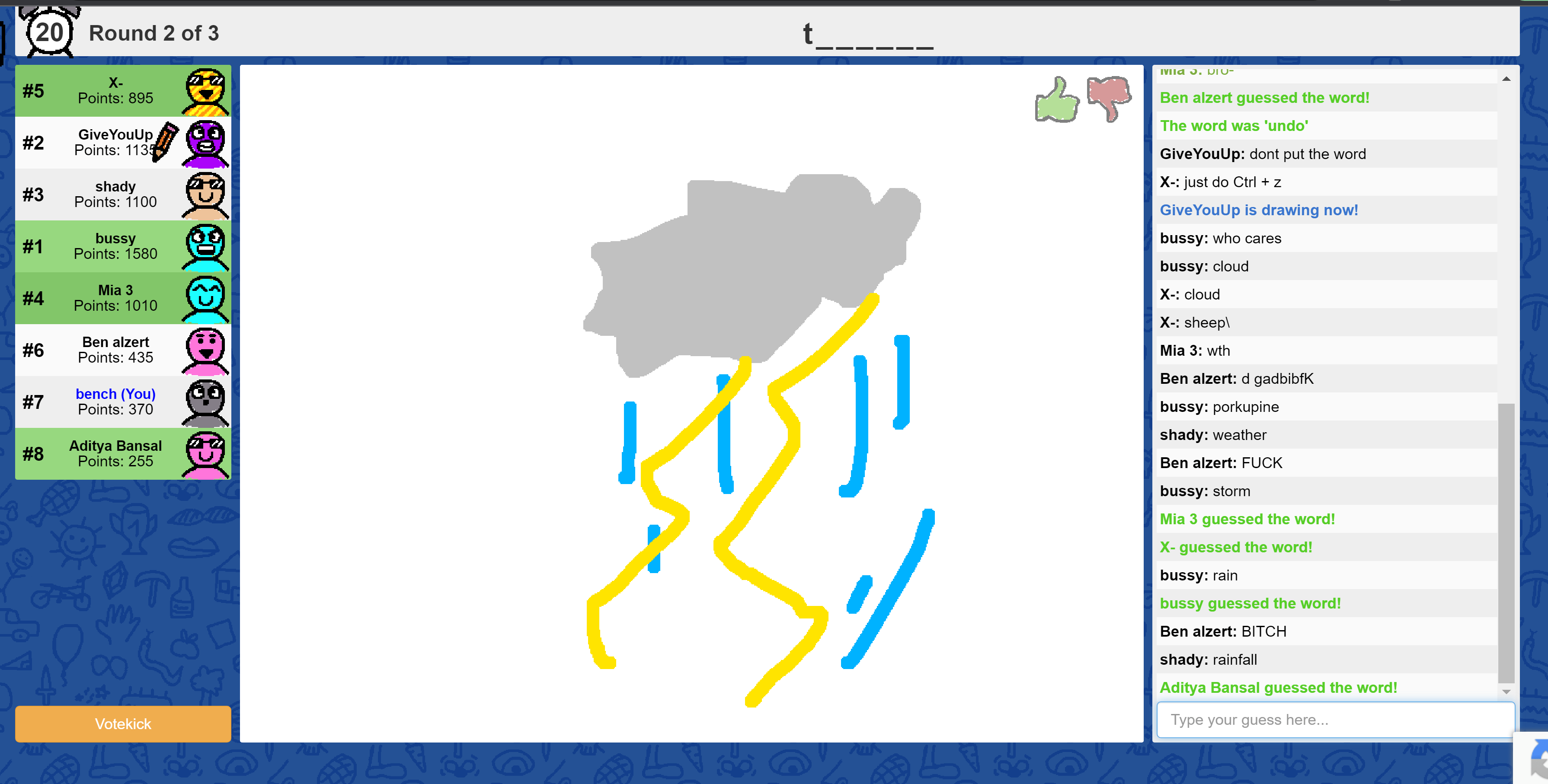Critical Play: Bluffing, Judging and Getting Vulnerable
For this week’s critical play, I played Skribbl.io, which was developed by @ticedev and developed on a mobile / virtual platform. The game can be played by people of all ages, but is intended for groups that are similar in age.
The game can support up to 12 people, but is typically played in groups of size 6-8. Players play as either the artist or a guesser; the artist has the ability to draw on the shared screen, and the guessers can only guess words. The guesser is awarded points based on how fast they guess the word, and the artist is rewarded points based on how many guessers guess correctly; artists rotate between rounds, and a total of 3-4 rotations are played. Player relationships are primarily formed socially, as each player has different artistic skill / style to bring to their drawings.
The game leaves a lot of the game up to the players by allowing them to draw whatever they want in their screen, leaving space for conversation between players. When I played the game, I played with friends, so the fun was primarily fellowship, but the game also has very strong elements of expression, as each player expresses themselves however they choose. The game just serves as a medium for discussion and interaction between players, but most of the fun is determined by the players.
Thus, the game works because of its lack of restraints. In order to improve it, the rules should not be tightened, but rather loosened. For example, allowing players to come up with their own words / word bank will allow for more inside-jokes, and thus more fellowship (and possibly expression too!) Other ideas would be improving UI and increasing the abilities of the drawing tools, but those are mostly irrelevant to the overarching game. Finally, to make the game more multiplayer-child-friendly, a word filter can be put in the guessing chat (use case seen in the screenshot below)

Scribbl.io is much more similar to its judging counterparts than its deception counterparts. However, I would say that the key difference between Scribbl.io and a game like Apples to Applies is its freedom. Players are only given one prompt, but can put as much of their own expression and flair as they need to, whereas in other games, players must play from their given set of cards, giving them less freedom to play. Scribbl.io is also much more subjective, as players come in with artistic skills, which adds to personality charm but also gives an “unfair” edge to some players. In terms of vulnerability, the game doesn’t seem to focus on it, but players are required to put confidence in their artistic skills, which can be intimidating at times.
Overall, I would say that this game is better because it forces more bonds by forcing players to interact more closely and with more personal expression. 🙂


